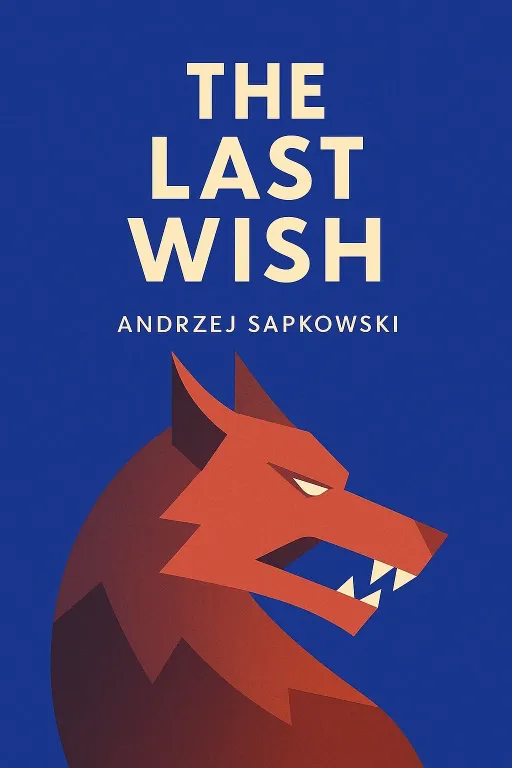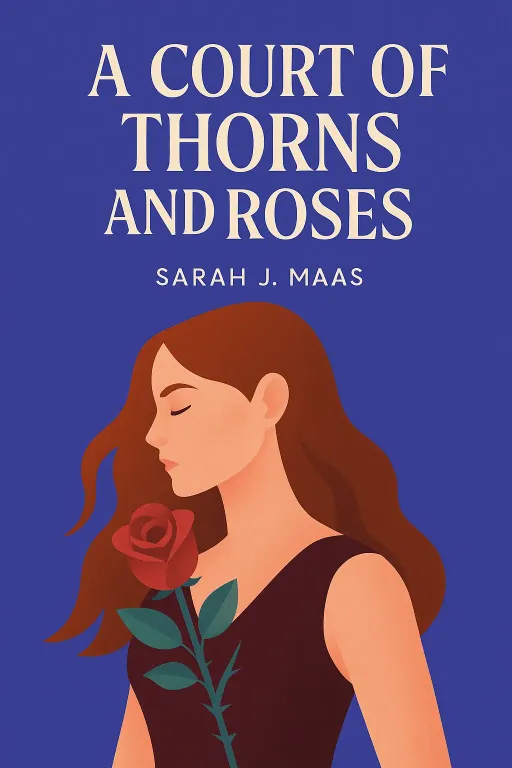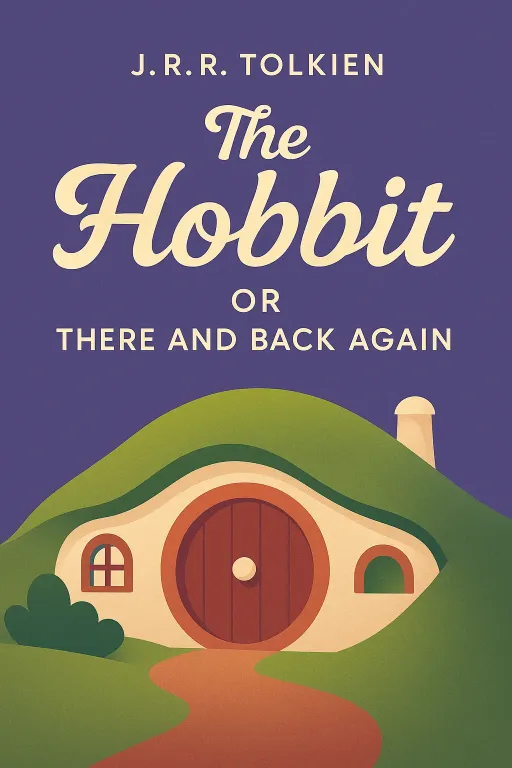
Butchers, Beasts & Lesser Evils
12 minGolden Hook & Introduction
SECTION
Daniel: Most fantasy heroes save the world. They slay the dragon, rescue the princess, and everyone loves them. The hero of the book we're talking about today does all that... and the villagers run him out of town with stones and call him a butcher. What went wrong? Sophia: Okay, I'm hooked. That sounds like a performance review I once had. What book creates a hero that people hate for doing his job? Daniel: It’s a foundational work of modern fantasy that has exploded in popularity over the last decade. We're diving into The Last Wish by Andrzej Sapkowski. Sophia: Ah, the Witcher. I feel like everyone knows the name Geralt of Rivia now, from the games and the show. But the books are where it all started. Daniel: Exactly. And to understand them, you have to know a little about the author. Sapkowski, often called the "Polish Tolkien," was writing in the late 80s and early 90s, right as Poland was emerging from behind the Iron Curtain. It was a time of immense social and political upheaval. Sophia: That makes so much sense. That context of a society grappling with prejudice, shifting power, and deep-seated distrust feels baked into every page of this book. It’s not your standard medieval fairyland. Daniel: Not at all. And it's not a traditional novel, either. It’s a collection of interconnected short stories, all held together by these framing segments where Geralt is recovering from injuries and reflecting on his past. Sophia: That "butcher" label you mentioned sounds like the perfect place to start. It feels like the core of his struggle and the book's entire philosophy.
The Gray Zone: Deconstructing Good and Evil
SECTION
Daniel: It absolutely is. It comes from a story called "The Lesser Evil," which is probably the most famous distillation of the Witcher's moral code. Geralt arrives in a town called Blaviken and gets caught between two people who want each other dead. Sophia: A classic fantasy setup. Let me guess, one is good and one is evil? Daniel: That's what they both want him to believe. On one side, you have Stregobor, a reclusive wizard who claims the woman hunting him, Renfri, is a cursed monster, a mutant born under an evil eclipse, destined to bring ruin. He wants Geralt to kill her as the "lesser evil" to prevent a greater tragedy. Sophia: Hold on. A wizard hiding in a tower, claiming a princess is evil because of a prophecy? That sounds suspiciously convenient. It feels like he's just using superstition to justify getting rid of someone he fears. Daniel: You've put your finger right on it. Because then Geralt meets Renfri. She was a princess, but after Stregobor's prophecy, her stepmother tried to have her assassinated. She survived, was abused, and eventually became the leader of a ruthless gang of mercenaries. All she wants is revenge on the man who ruined her life. Sophia: Wow. So her story is completely different. She’s not a monster; she's a survivor. A very angry, very dangerous survivor, but a human one. My sympathy is entirely with her. Daniel: As is Geralt's. He sees the humanity in her and refuses to be Stregobor's assassin. He tells the wizard something that becomes his defining quote: "Evil is evil. Lesser, greater, middling, it's all the same... If I'm to choose between one evil and another, then I prefer not to choose at all." Sophia: I love that. It's a powerful stance. But I have a feeling "not choosing" isn't really an option here. Daniel: It's not. Renfri gives Geralt an ultimatum: either he helps her kill Stregobor, or she and her gang will start slaughtering the townspeople in the marketplace to force the wizard out of his tower. She essentially plans to create a hostage crisis, something the book calls a "Tridam Ultimatum." Sophia: Oh man. So his choice is to stand by and watch innocent people die, or to intervene and become a killer himself. There's no clean way out. Daniel: None. He chooses to protect the town. He goes to the marketplace and, in a brutal, lightning-fast fight, kills Renfri's entire gang. Renfri herself dies in his arms. He saved everyone. And what happens next? Sophia: I'm guessing they don't throw him a parade. Daniel: The townspeople only see the aftermath. They see this strange, white-haired man standing over a pile of bodies, covered in blood. Stregobor comes out, confirms Renfri was a "monster," and leaves Geralt to face the crowd. They don't see a savior; they see a butcher. They throw stones at him until he leaves town. Sophia: That's heartbreaking. He made the only choice he could to save lives, the "lesser evil," and it branded him a monster forever. It completely demolishes the idea of a clean, heroic choice. Daniel: And that's the point. Sapkowski is showing a world where morality is messy, and good intentions pave the road to condemnation. It's a world without easy answers, only consequences.
Who's the Real Monster?: Subverting Fairy Tales and Expectations
SECTION
Sophia: That idea of consequences, and who gets labeled a monster, seems to be a running theme. It’s not just about good and evil, but about what we even define as monstrous. Daniel: Exactly. And Sapkowski loves to explore this by taking classic fairy tales and twisting them into something much darker and more complex. The story "A Grain of Truth" is a perfect example. It's essentially a gritty, philosophical take on Beauty and the Beast. Sophia: Okay, I'm intrigued. How does he twist it? Daniel: Geralt stumbles upon a secluded, magical manor inhabited by a monstrous, bear-like beast named Nivellen. But Nivellen isn't a typical monster. He's witty, hospitable, and deeply lonely. He tells Geralt he was cursed years ago after his gang of bandits assaulted a priestess. He's been living alone, hoping the love of a woman will break the curse. Sophia: So far, it sounds a lot like the fairy tale. The beast is actually a good guy underneath. Daniel: That's what you're led to believe. But then Geralt learns about Nivellen's current lover, a beautiful, pale, black-haired girl named Vereena. Nivellen is deeply in love with her. The problem is, Geralt's horse is terrified of her, and his witcher medallion, which detects magic and monsters, hums in her presence. Sophia: Uh oh. So the "Beauty" in this story is not what she seems. Daniel: Not at all. Vereena is a bruxa—a powerful type of vampire. She's been the one murdering travelers in the area, not Nivellen. The story climaxes with a brutal fight between Geralt and the vampire. Nivellen, torn between the woman he loves and saving Geralt, makes a choice. He impales his lover on a sharpened pole to stop her. Sophia: Wow. So in this version, the Beast has to kill Beauty to save the day. That's a dark twist. Daniel: It gets darker. As Vereena dies, she confesses her love for him. And that combination—true love and blood—is what finally breaks Nivellen's curse. He turns back into a normal man, but he's left completely broken, having killed the only creature who ever truly loved him, monster or not. Sophia: So the question becomes, who was the real monster? The cursed man who committed a terrible crime in his past? The vampire who killed out of her nature but also loved? Or the society that created the conditions for all of it? Daniel: Precisely. The book never gives you a simple answer. It's the same with the Striga in the first story, "The Witcher." She's a horrifying monster that slaughters people, but she's also a cursed child, a victim of incest and a political spell. Geralt's job isn't just to kill her, but to try and save the girl inside the monster. Sapkowski constantly forces you to look for the grain of truth, the humanity, inside the monstrous shell.
The Weight of a Wish: Destiny, Choice, and Connection
SECTION
Sophia: It feels like so much of this is out of Geralt's hands. He's constantly reacting to curses, prophecies, and the political machinations of others. Which brings me to this huge theme that hangs over the entire book: destiny. Daniel: Yes, the idea of fate is arguably the most powerful force in this world. It's not just an abstract concept; it has rules. The most important one is the "Law of Surprise." It's an ancient tradition where, if you save someone's life, you can claim as payment "that which he already has, but does not know." Sophia: That sounds cryptic. What does it usually end up being? Daniel: Often, it's an unborn child. The person returns home to find their wife is pregnant. And that child's fate is now tied to the savior's. It's a binding promise of destiny. Geralt himself becomes entangled in this in the story "A Question of Price," which sets up the entire saga to come. Sophia: But the most powerful example of this has to be in the title story, "The Last Wish." It's where he meets the sorceress Yennefer of Vengerberg. Daniel: The one and only. It starts simply enough. Geralt's friend, the bard Dandilion, finds a magic lamp—well, an old amphora—and releases a djinn, a powerful air genie. Dandilion, being Dandilion, makes a couple of foolish wishes that backfire spectacularly and leave him gravely injured. Sophia: Of course he does. That sounds about right for him. Daniel: So Geralt rushes to the nearest town to find a mage to save him, and he finds Yennefer. She's incredibly powerful, stunningly beautiful, and immediately manipulative. She agrees to help, but she has her own agenda: she wants to capture the djinn for herself to gain even more power. She traps Geralt in a magical trance and uses him as a pawn in her dangerous ritual. Sophia: This is where the book gets controversial for some readers. Yennefer is a fantastic, strong female character, but their relationship starts with her magically enslaving him. It's... complicated. Daniel: Extremely. The ritual goes wrong, the djinn breaks free and is about to kill Yennefer. Geralt realizes the djinn is still bound to grant him one final wish. He's the genie's true master. To save Yennefer, he has to make his last wish. Sophia: And he doesn't wish for gold or power. What does he wish for? Daniel: The book never states the exact words, but the implication is clear. He wishes to bind his fate to Yennefer's. He ties their destinies together so the djinn can't harm her without harming its own master. It's an incredible sacrifice. The wish saves her, frees the djinn, and inextricably links them forever. Sophia: So their epic, tumultuous love story that spans the entire saga is literally founded on a wish? A magical, binding contract. It raises so many questions about free will. Do they love each other, or are they just magically compelled to? Daniel: That is the central question of their relationship. Is it love, or is it destiny? And like everything else in this book, there's no easy answer. It's a choice that saves a life but erases the very possibility of a simple, unburdened connection.
Synthesis & Takeaways
SECTION
Daniel: When you put it all together, you see the world Sapkowski has built. It’s a world defined by moral grayness, where the line between man and monster is constantly blurred, and where the immense, uncontrollable power of destiny can be unleashed by a single wish. Sophia: It’s a world where being a hero is a dirty, thankless job. Doing the "right" thing can get you run out of town, and falling in love might just be a form of magical bondage. It’s so much more philosophically complex than most fantasy. Daniel: It really is. It uses monsters and magic not for escapism, but to hold up a mirror to our own world's complexities—our prejudices, our difficult choices, and our struggle to find meaning when fate seems to have its own plans. Sophia: It really makes you think. If you were in Geralt's shoes in that marketplace in Blaviken, with innocent lives on the line, what would you have done? There's no clean answer, is there? Daniel: Not one. And that's the beauty of it. Sophia: We'd love to hear what you think. Is Geralt a hero, a pragmatist, or just a man trying to survive in a world that doesn't want him? Find us on our socials and join the conversation. We're always curious to hear your take. Daniel: This is Aibrary, signing off.

